In order to work towards a resilient future with China for the EU and its citizens, the ‘ReConnect China’ project has discerned four domains of research. These research domains are grouped in four work packages (WP): WP 1 deals with Science & Technology, WP 2 deals with Trade & Economy, WP 3 deals with China’s domestic governance, and WP 4 deals with China’s foreign policy. The knowledge that is generated in these four workpackages is catered to policy makers, the business community, and researchers in WP 5: Network and Synergies, and is disseminated to the larger public, with a focus on youth in WP 6: Measures to maximize impact.
Moreover, this list of six thematic WPs is complemented by a WP on project coordination (WP7) and one on ethical research requirements (WP8), both under the coordination of the University of Ghent.
WP1 Science & Technology (Innovation Norway)
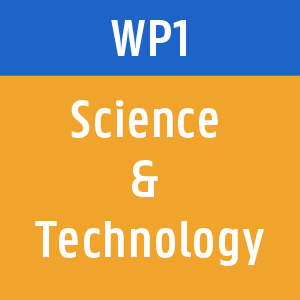
WP1 deals with science and technology in China and between the EU and China. More exactly, this WP assesses knowledge flows between the EU and China through providing a research cooperation analysis (T1.1), looks at the legal and regulatory aspects of science and technology development in China (T1.2), aims to understand what drives China’s progress in frontier technologies (T1.3) and analyses S&T cooperation between the EU and China from an economic point of view (T1.4).
The key outcome of this WP will be a better understanding of different dimensions of EU-China S&T cooperation provided by a series of analytical policy reports.
This outcome will be achieved through the following three key objectives:
- Creating an overview of EU-China Science & Technology (S&T) cooperation with regard to legal, regulatory and economic aspects.
- Producing in-depth studies of frontier technologies such as space, quantum, AI and CCUS for a better understanding of the scope of, current trends in and their impact on EU-China S&T cooperation.
- Developing policy recommendations on S&T cooperation, including high priority areas, legal and regulatory aspects, frontier technologies, and the economic dimension of S&T regulation
WP2 Trade & Economy (CCCM)
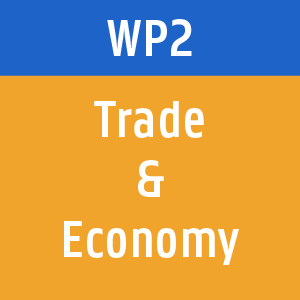
WP2 covers the trade and economy dimension of EU-China cooperation. Its focus is on two aspects: China’s economic dual circulation strategy (T2.1) and China’s economic diplomacy towards the EU (2.1).
The key outcome of this WP is a clear and novel analysis of economic and trade policy issues currently existing between the EU and China.
This outcome will be achieved through the following three key objectives:
- Predicting which issues may arise, depending on various decisions and actions taken in the short- and medium-term by both China and the EU
- Revaluing these issues in the light of European and Chinese economic interests and values, and take into account the democratic underpinnings of the EU
- Developing policy recommendations towards European stakeholders related to the EU-China economic strategy and industrial policy and China’s economic diplomacy towards the EU
WP3 China’s domestic governance (University of Vienna)
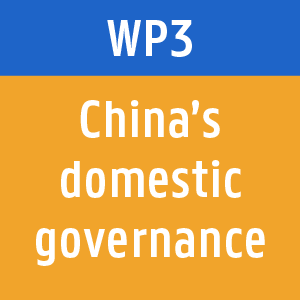
WP3 puts a focus on China’s domestic governance, internal political affairs and the Chinese Communist Party’s (CCP) sources of legitimacy. It traces government narratives and popular discourses on the core values underlying the CCP one-party rule, its state-building efforts and its relationship with the international community. The team in WP3 develops a unique database to trace political developments across China, including new sources of information (T3.1), tracks continuities and changes in China’s domestic politics during the Xi Jinping era (T3.2) and analyses how the EU and other political entities are framed by the Chinese propaganda system.
The key outcome of this WP is a better contextualisation of the underlying powers for the CCP’s one-party rule in China and its sources of legitimacy by tracing government narratives and popular discourses on the CCP’s core values, its state-building efforts and its relationship with the international community.
This outcome will be achieved through the following four key objectives:
- Creating a comprehensive repository of policies, laws and regulations, government narratives and social media feeds
- Using state-of-the-art natural language processing and machine learning as well as field research to trace how government narratives and popular discourses influence each other
- Researching how the propaganda system attempts to influence public opinion at home and abroad
- Keeping track of core ideologies and values informing China’s policies and international relation
WP4 China’s foreign policy (Egmont)
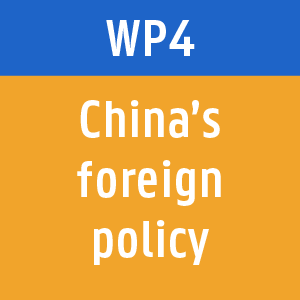
Through the work done in WP4, we will enable a more comprehensive understanding of China’s contemporary foreign policy and its trajectory. This WP is divided into four research streams studying instruments that are part of China’s foreign policy toolbox, namely diplomacy (T4.1), security and defence (T4.2), connectivity (T4.3) and narratives (T4.4).
The key outcome of this WP is an evidence-based assessment of China’s approach to foreign policy, including some of its priority topics when it comes to actually implementing foreign policy.
This outcome will be achieved through the following four key objectives:
- Comprehensively scrutinising and comparing China’s four instruments of power – diplomacy, security and defence, connectivity, narratives – and their application across the Indo-Pacific, Europe, Latin America/MENA and global governance
- Producing relevant policy options
- Linking fragmented research communities, creating new network effects for European research on China’s global affairs
- Supporting the understanding of China’s global role as it relates to the EU strategy of meeting China as a partner, competitor and rival
WP5 Network and synergies (Clingendael)
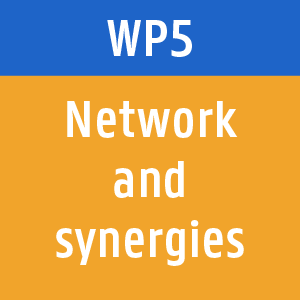
WP5 is dedicated to networking, stakeholder management and the creation of synergies between China experts across the EU. It puts into place three specific outreach activities targeting the European expert community on China: The establishment of a new Europe-China Knowledge Forum (ECKF) (T5.1), the organisation of Europe-China roundtables (T5.2) and the gathering and engagement of European China experts in a yearly ECKF conference (T5.3).
The key outcome of this WP will be new and durable networking opportunities/synergies for China experts (researchers, policy makers etc.) in Europe and the set-up of a sustainable platform for brokering knowledge questions with stakeholders.
This outcome will be achieved through the following five key objectives:
- Connecting the researchers and their insights from all analytic WPs to key stakeholders: policymakers, industry-leaders, and partners from education, culture and science
- Empowering researchers from all analytic WP’s to test preliminary insights from ongoing research against the practical experience of key stakeholders
- Setting up a Europe-wide recognizable knowledge hub on China that works with key stakeholders in turning the research outputs from WP1-4 into pathways to societal impact
- Developing this knowledge hub into a structure that supports the sustainable exchange of strategic knowledge between researchers and stakeholders in Europe beyond the project’s lifespan
- Assisting the transfer of key-insights from the analytical WPs 1-4 to the various activities of communication of WP6, including setting the agenda for the creation of MOOCs by WP6
WP6 Measures to maximise impact (ZSI)
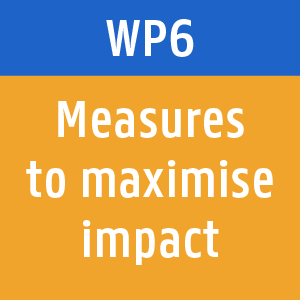
WP6 is the project’s work package for public outreach, results dissemination and exploitation and impact maximisation. In order to effectively communicate to and engage with all project stakeholders and target groups, ReConnect China will use the following outreach tools and instruments: Public website, social media, press releases, media publications and podcasts (T6.1), a comprehensive dissemination and exploitation strategy, info graphics to beef up various publications, MOOCs featuring introductory content on China, the East Asia platform of UGHENT to reach stakeholders in China (T6.1), and an impact monitoring scheme to steer and control the project’s progress towards impact (T6.3).
They key outcome of this WP will be the project’s promotion towards the general public and specific target groups. This, combined with an proactive approach to results sharing, will help to identify specific pathways to impact over the project duration, facilitating the continuity of some project activities also after its official end.
This outcome will be achieved through the following two key objectives:
- Increasing the quality of the public discourse on China and raising awareness about the contributions of ReConnect China to it (=increasing and fostering understanding about China among European society)
- Maximising the impact of the project’s activities and results by following an exploitation-oriented approach to its outputs produced vis-à-vis the defined target groups (=translating novel research insights into practical outputs that are of relevance and interest and therefore may be adopted by external actors beyond the project’s end)